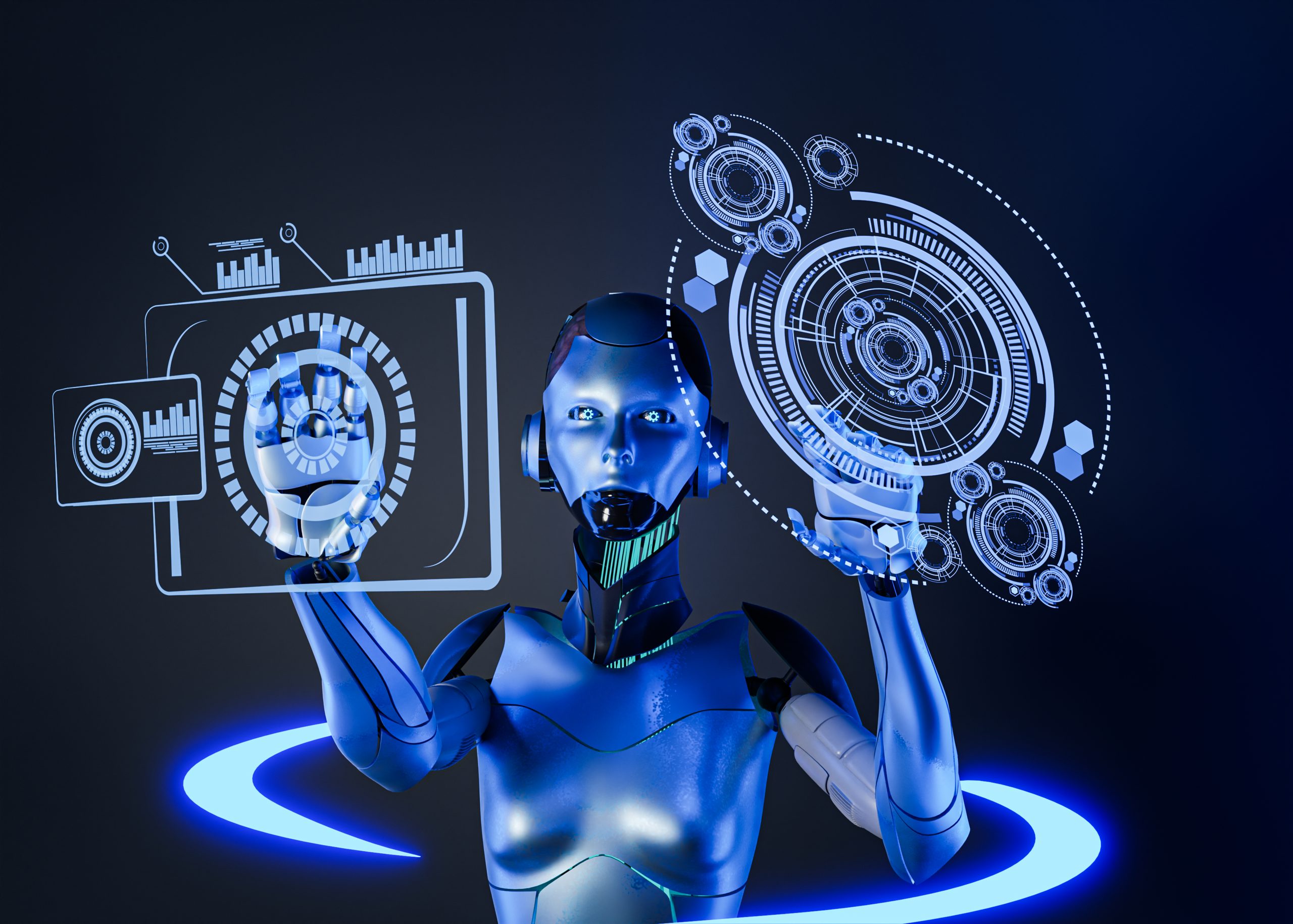
Artificial Intelligence (AI) has rapidly evolved from a futuristic concept to a powerful force that permeates various aspects of our daily lives. This transformative technology is reshaping industries, enhancing efficiency, and challenging traditional paradigms. In this blog post, we will explore the current state of AI technology, its applications across different sectors, and the implications it holds for the future.
Understanding AI:

This encompasses a broad range of capabilities, from problem-solving and learning to natural language processing and perception. AI can be categorized into narrow or weak AI, which is designed to perform specific tasks, and general or strong AI, which possesses the ability to understand, learn, and apply knowledge across diverse domains.
AI Applications in Different Sectors:

-
Healthcare:
Machine learning algorithms analyze vast datasets to identify patterns and predict diseases, enabling early detection and personalized treatment plans. Surgical robots and AI-assisted procedures are also becoming commonplace, reducing human error and improving surgical outcomes.
-
Finance:
In the financial sector, AI is playing a pivotal role in fraud detection, risk management, and customer service. Chatbots powered by natural language processing assist customers with inquiries, while predictive analytics models help financial institutions make data-driven decisions, optimizing investments and minimizing risks.
-
Education:
AI is transforming education through personalized learning experiences and adaptive assessment tools. Intelligent tutoring systems can tailor educational content to individual student needs, fostering a more effective and engaging learning environment. Additionally, AI-driven analytics provide valuable insights into student performance and help educators tailor their teaching strategies.
-
Manufacturing:
The manufacturing industry has embraced AI to enhance efficiency and productivity. Smart factories leverage AI-powered systems to monitor and optimize production processes, predict equipment failures, and minimize downtime. Robotics and automation, guided by AI, are increasingly taking on tasks that require precision and speed.
The Ethical Considerations of AI:

Issues such as bias in algorithms, data privacy, and the potential impact on employment are subjects of ongoing debate. Ensuring that AI systems are developed and deployed responsibly is crucial to mitigating these concerns. Ethical AI frameworks, transparency in algorithmic decision-making, and a commitment to fairness are essential components of responsible AI development.
The Future of AI:
-
Advancements in Deep Learning:
Neural networks with multiple layers (deep neural networks) can autonomously learn and make decisions from data. As research in deep learning progresses, we can anticipate even more sophisticated AI systems capable of handling complex tasks with increased accuracy.
-
AI and Quantum Computing:
The marriage of AI and quantum computing holds immense potential. Quantum computers, with their ability to process vast amounts of data simultaneously, can significantly accelerate AI computations. This synergy may lead to breakthroughs in optimization problems, machine learning algorithms, and the development of AI models that were previously computationally infeasible.
-
Human-AI Collaboration:
The future of AI is not about machines replacing humans but rather enhancing human capabilities. Collaborative intelligence, where humans and AI work together synergistically, is an emerging paradigm. AI can augment human decision-making, automate repetitive tasks, and contribute to innovation, leading to a more productive and creative society.
-
Predictive Analytics:
By analyzing historical data, AI tools can predict future trends and outcomes. This predictive capability is particularly valuable in industries like finance, where it can aid in risk assessment, fraud detection, and investment strategies.
-
Data Analysis and Insights:
The ability of AI tools to process and analyze massive datasets is unparalleled. Businesses can harness this capability to gain valuable insights into customer behavior, market trends, and operational efficiency, facilitating data-driven decision-making
Conclusion:

AI technology is undeniably reshaping our world, offering unprecedented opportunities and challenges. From healthcare and finance to education and manufacturing, the impact of AI is far-reaching. As we navigate the future, it is essential to approach AI development with ethical considerations, ensuring that this powerful technology is wielded responsibly for the benefit of society. The journey of AI is an ongoing evolution, and by fostering a collaborative relationship between humans and machines, we can unlock the full potential of this transformative technology.
Follow us For more Like this:


